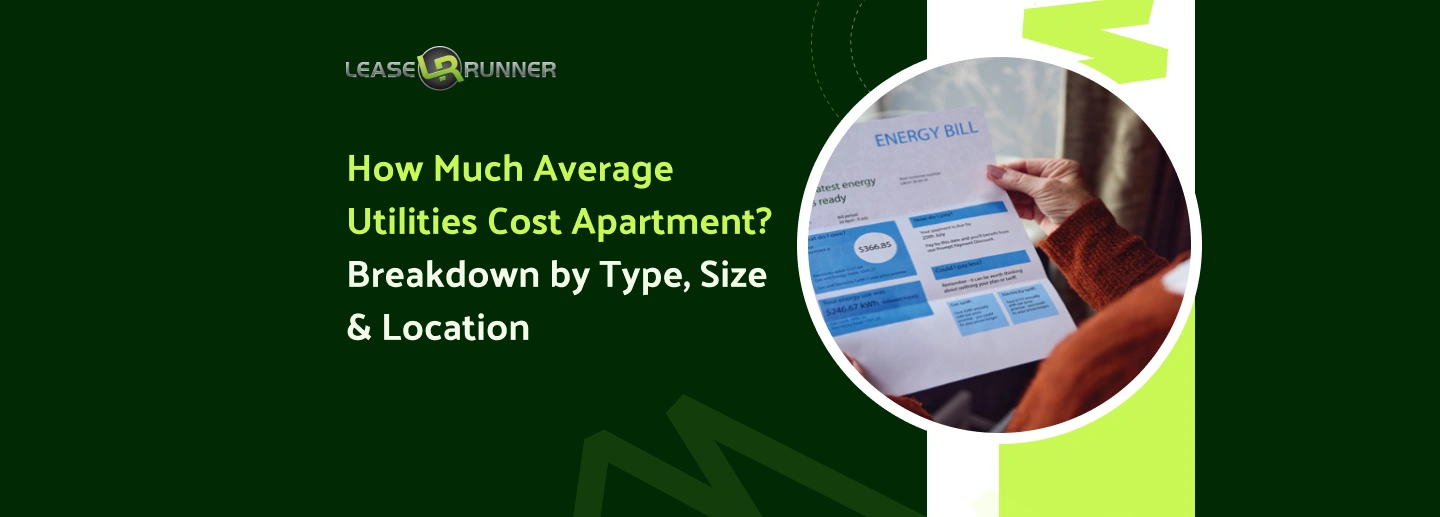Understanding the month-to-month rent increase in California is essential for landlords and tenants navigating the state's rental market. The Tenant Protection Act (AB 1482) sets clear limits on how much landlords can raise rent each year.
For example, under AB 1482, rent increases are capped at 5% plus the local Consumer Price Index (CPI), or 10%, whichever is lower. So, if the CPI is 3%, a landlord can raise rent by up to 8%. Local ordinances may add extra rules, such as longer notice periods or lower caps. For instance, Los Angeles limits rent increase to 3% annually for older buildings.
This guide explains how often landlords can raise rent, the required notice periods, exemptions, and tenants' rights. Knowing these details helps landlords stay legal and tenants protect their homes.

Quick Facts Table About Monthly Rent Increase In California
What Is a Month-to-Month Lease in California?
A month-to-month lease in California is a rental arrangement that doesn't have a set expiration date. Every month, when the renter pays rent, it automatically renews.
The landlord or tenant may break the lease by providing the other party the right amount of written notice. If the tenant has lived there for less than a year, they must provide 30 days' notice. If they have lived there for more than a year, they must give 60 days' notice.
For instance, a tenant who wants to be allowed to leave may do so by providing 30 days' notice. Or else, the landlord can provide a 60-day rent increase notice in California if they want to raise the rent of the tenant who has lived there for more than a year.
Based on that advantage, tenants who need a place to live for a short time and landlords who wish to change the rent or conditions often will find this sort of lease useful.
California's Rent Increase Laws for Month-to-Month Tenancies
The rent control rules in California protect tenants while still giving landlords privileges. Here are some important principles for raising rent on a month-to-month basis.

Statewide Rent Increase Caps under AB 1482
Under California's Tenant Protection Act (AB 1482), annual rent increases are limited to 5% plus the regional Consumer Price Index (CPI), or 10%, whichever is lower.
For example, if a tenant pays $1,500 per month and the local CPI is 2.3%, the landlord can raise rent by 7.3%, making the new rent $1,609.50. But if the CPI goes beyond 5%, the highest rise stays at 10%, therefore in this situation, the rent would not go above $1,650.
How Much Can Landlords Raise Rent in California?
AB 1482 states that landlords can only increase the rent once a year. If the total increase is 10% or less for month-to-month rentals, landlords in California must provide a written rent increase notice 30 days in advance. You need to provide 60 days' notice if the increase is more than 10%.
You need to provide 30 days' notice if you want to raise the rent from $1,000 to $1,080, but 60 days' notice if you want to raise it to $1,150.
Exemptions from Rent Control
There are several properties that are not subject to the rent limitations under AB 1482. These are:
- Single-family residences, unless they are held by a trust or a company
- Buildings built after February 2005
- Duplexes that are owned by the people who live in them
For instance, a landlord of a new apartment complex from 2010 may increase the rent without these limits, but they still have to provide adequate notice. Landlords need to know these regulations so they can follow California's rent control laws and save renters from having to pay too much rent.
Notice Requirements for Rent Increases
California rental laws set clear rules for how landlords must notify tenants about rent increases. These rules help tenants prepare and respond to changes in their housing costs.

Standard Notice Periods
Landlords must offer renters at least 30 days' written notice before a rent increase of 10% or less goes into effect within a year. If a renter pays $1,200 a month and the landlord wants to increase the rent by 8%, the landlord must tell the tenant 30 days ahead of time.
Landlords must provide 90 days' written notice if the rent goes up by more than 10% or if repeated increases sum up to more than 10% in one year. For example, if a landlord wants to raise the rent from $1,000 to $1,150 (a 15% increase), they have to tell the tenant 90 days before the increase begins.
Notice Delivery Methods
Landlords must deliver rent increase notices in writing. Acceptable methods include:
- Certified mail to ensure proof of delivery
- In-person delivery directly to the tenant
- Posting the notice on the property if the tenant is absent
Using certified mail is common because it creates a record that the tenant received the notice.
Landlords should clearly state the current rent, the new rent, and the effective date in the notice. Tenants should keep copies of all notices to protect their rights. If a landlord fails to follow these notice rules, tenants can file complaints with local housing authorities or seek legal help.
Frequency of Rent Increases
Landlords may only increase rent once a year under AB 1482. For instance, a landlord can't raise the rent by 5% in January and then again by 6% in June. Instead, all legal rent increases in California must be added together and used once a year.
Landlords must send renters a written notice at least 60 days before the rent increase takes effect if it is more than 10% of the entire rent. If the increase is less than 10%, you need to provide 30 days' notice.
If a renter pays $1,000 a month and the landlord wishes to increase the rent by 12%, the landlord must provide the tenant 60 days' notice before charging $1,120. This provision keeps renters safe from unexpected or frequent rent increases and makes sure that everyone knows about changes in rent.
Use LeaseRunner to track rent increases & stay legally protected.

Know the Limits. Avoid the Dispute
Local Rent Control Ordinances
California cities often have their own rent control laws that add extra rules on top of state protections. Local rent control laws might be harsher and quite different from any other; both landlords and renters need to know what limitations are in their local area.

City-Specific Regulations
The Rent Stabilisation Ordinance in Los Angeles states that rent may only go up by 3% a year for properties built before 1978. If a renter pays $1,200 a month, the landlord may only increase the rent by $36 a year, for example. This limit helps keep older houses affordable.
Landlords in San Francisco must offer renters 60 days' written notice before raising the rent, no matter how much it is. For example, a 1% increase needs a complete 60-day notice.
The city also sets limitations on how much rent may go up each year, depending on inflation. In 2025, the maximum rise will be roughly 2.8%. This keeps renters from having to pay huge rent increases all of a sudden.
Importance of Local Ordinances
State laws like AB 1482 are regularly changed or added to by regional laws. For instance, AB 1482 limits rent increases to 10%, although Los Angeles and San Francisco have lower limits and lengthier notice periods.
Landlords should always verify the rules in their city or town before increasing rent to make sure they aren't breaking the law. Tenants should also know their city's rules to spot illegal hikes. Tenants should request written notices and keep them safe.
Landlords should document all rent increase communications. Both can contact local housing departments or rent boards for guidance.
5 Steps Landlords Should Take When Increasing Rent
To minimise problems and legal challenges, landlords must carefully follow California rules while raising rent. Here are five things landlords should do to make sure the procedure goes smoothly and legally.
Step 1: Ensure Compliance with the Law
Check to see whether your property is covered by AB 1482 or local rent control laws before raising the rent. Under AB 1482, rent may only go up by 5% plus the local inflation rate, or 10%, whichever is lower.
If the local CPI is 3%, the most you may raise it is 8%. Properties constructed in the previous 15 years or single-family houses that are not owned by businesses may not have to pay. Look at your local laws to see if there are harsher limitations.
In Los Angeles County, the Rent Stabilisation Ordinance says that rent increases for units covered by it can't be more than 60% of the percentage rise in the CPI, and they can't be more than 3%.
Step 2: Provide Proper Notice
Send renters a written notification of the rent increase via certified mail to be sure they get it. If the rent goes up by 10% or less, you need to provide 30 days' notice. If it goes up by more than 10%, you need to give 90 days' notice. The instructions need to have:
- The amount of rent right now
- The new amount of rent
- The day the raise goes into effect
Step 3: Document All Communications
To avoid problems in the future, save copies of all notifications of rent increases and any tenant responses. Keeping a record of every conversation might assist in showing that you are following the law. For instance, save emails, letters, and any signed receipts that show the renter got the notification.
Step 4: Calculate the Rent Increase Correctly
Calculate the allowable rent increase based on the regional CPI and the existing rent. Use the Bureau of Labour Statistics and other resources to find out the CPI for your area. If the rent is now $1,500 and the local CPI is 2%, the highest it may go up is 7%, or $105 (5% + 2%).
Step 5: Stay Informed About Legal Changes
You need to stay up to date on changes to California's rent control laws. Watch for changes to AB 1482 and local regulations that might make it difficult for you to increase rent. To be sure you are still following the requirements, talk to attorneys or property management companies.
By doing these things, landlords may be able to increase the rent in a manner that is both fair and lawful. This will help them prevent difficulties with tenants and keep their rental business going strong over time.
Tenant Protections Against Unlawful Rent Increases
California renters have robust protections against unauthorised rent hikes that keep housing affordable and stop arbitrary evictions. Some of these safeguards include restrictions against price gouging, rules about just cause eviction, and severe notice requirements.
Just Cause Eviction Protections
The Tenant Protection Act (AB 1482) states that landlords can't force away tenants only to raise the rent or get around rent control rules. A landlord may evict a tenant for not paying rent, breaching the terms of the lease, or planning to move in themselves.
If a landlord tries to evict a tenant without a solid cause so they may charge a new renter more rent, this is illegal. Tenants may fight these sorts of evictions in court or obtain support from groups that help tenants.
Anti-Price Gouging Laws
California bans rent hikes to no more than 10% during declared situations like pandemics or wildfires. During the 2025 wildfire catastrophe in Los Angeles County, for example, rent increases of more than 10% were not allowed.
This regulation keeps renters safe from abrupt, big rent increases when there aren't enough homes. Landlords who flout this law might be fined or taken to court. Some landlords have sought to hike rent by 60% or more during crises in the last few years. But law enforcement has taken harsh action against them.
Notice and Documentation Requirements
- Landlords must give tenants proper written notice before increasing rent.
- If the increase is less than 10%, you need to provide 30 days' notice.
- Landlords must provide 90 days' notice for rent increases of more than 10%.
- A landlord can't increase the rent by 15% with only 30 days' notice, for instance.
- Tenants should maintain copies of any notifications and messages they receive.
- Tenants may complain to their local rent control boards or housing departments if their landlord doesn't follow these guidelines.

5 Steps Tenants Can Take If Facing Unlawful Rent Increases
When renters have to pay more rent, it's important for them to know their rights and the rules that landlords must follow before moving forward.
Step 1: Verify the Legality of the Increase
First, find out whether the rent increase is legal in your area and state. In California, several areas have rules that restrict landlords from raising rent too much each year. The Tenant Protection Act, for instance, limits rent increases to 5% plus inflation, with a maximum of 10%.
Some residences, including newer structures or duplexes that are owned by the people who live in them, may not have to follow these restrictions. Tenants could either search for their city's rent legislation online or contact the housing agency in their area.
For instance, a renter in San Francisco could learn that a 15% increase is against the law in the city. Tenants who know the law may notice unlawful rent increases early.
Step 2: Communicate with the Landlord
If the rent increase appears excessively expensive, send a letter to the landlord and ask them to explain why. Ask for a written explanation of why the rent is going higher. For instance, the landlord can explain it's because of increasing property taxes or upkeep.
A renter in Sacramento might send a certified letter requesting this verification. Save all of your letters and emails. If you need to show that the landlord was unjust, this document trail is vital. Your allegation that the increase is unlawful is stronger if the landlord doesn't respond or presents a poor rationale.
Step 3: Seek Legal Assistance
If the landlord doesn't give you a good explanation, you may call tenant rights organisations or legal assistance. The California Legal Aid Foundation and other groups provide free help. They can assist you in preparing letters to fight the rent increase and explain your rights.
For instance, renters in Los Angeles have utilised Legal Aid to block unlawful rent increases and obtain their money back. You may also get help from local tenant unions or organisations that speak out for tenants. These organisations know the regulations in your area and can help you through each phase.
Step 4: Make a complaint to your local rent control board
If the landlord still wants to raise the rent illegally, you should submit a complaint to your city's housing department or rent control board. The Housing Department in Los Angeles looks into complaints and may punish landlords who disobey the regulations.
This move could stop the rent from going up and keep other renters safe as well. Keep copies of your complaint and any answers you obtain.
Step 5: Consider Legal Action if Needed
You may take the landlord to court if nothing else works. You may sue for unauthorised rent increases with the assistance of a lawyer or legal aid. Courts may order landlords to give back additional rent or cease raising it illegally in the future. Taking legal action is a last resort, but it may be a strong way to safeguard your rights.
Additional Advice
Always preserve a record of your rent payments, lease agreements, and any messages you send to your landlord. To remain up to date, go to meetings and seminars, or host your own. Knowing your rights and acting swiftly might help you save money and worry. You don't have to accept unlawful rent hikes; there is aid available.
Alt: california-rent-increase-month-to-month-guide
Conclusion
Understanding the California rules for month-to-month rent increases is key for tenants and landlords alike. Under AB 1482, rent hikes are capped at 5% plus the local Consumer Price Index (CPI), or 10%, whichever is lower.
For example, in Los Angeles, if the CPI is 3%, landlords can raise rent by up to 8% annually (5% + 3%). Landlords must also provide proper notice: 30 days for increases under 10%, and 60 days for higher hikes.
Tenants facing illegal rent increases should first verify if the increase follows these rules, then ask landlords for written reasons. If needed, seeking help from tenant rights groups or legal aid can protect tenants. Staying informed about local and state laws helps ensure fair treatment and prevents illegal rent hikes.
Hope this article has been a great help. Check out more guides on our LeaseRunner blog!
FAQs
Q1. Can a landlord raise rent monthly in California?
No, landlords in California can't increase the rate every month for month-to-month leases. State legislation says that rent may only go up so many times. Most rents may only go up once in a 12-month period.
For example, if your rent goes up in March, you can't have another rise until the following year. This provision keeps tenants from having to deal with changing housing expenses all the time.
Q2. How often can a landlord raise rent in California?
A landlord may usually increase the rent once a year. This is true for both fixed-term and month-to-month contracts; however, other cities may have harsher requirements.
For instance, Los Angeles and San Francisco may only let one increase happen per year, no matter what kind of lease it is. Always look up the particular restrictions in your area's rent control regulations.
Q3. How much can landlords raise rent in California?
The Tenant Protection Act (AB 1482) in California has already made it plain how much rent may go up. Landlords may raise rent by up to 5% plus the local inflation rate (CPI) or 10%, whichever is lower, during the course of a year.
If your rent is $1,500 and the CPI is 3%, the highest it may go up is $120 (5% + 3% = 8%). These rules may not apply to certain properties, such as new buildings or homes with just one family living in them.
Q3. How long should landlords in California provide a month-to-month rental increase notice?
Before increasing the rent, a landlord must offer written notice. If the increase is 10% or less, you need to provide at least 30 days' notice. The legislation says that you must provide 60 days' notice if the increase is greater than 10%.
The notification should include when the new rent begins and how much it is. It should be sent via mail or in person. If your rent goes up by 12%, for instance, your landlord must let you know at least two months in advance.







